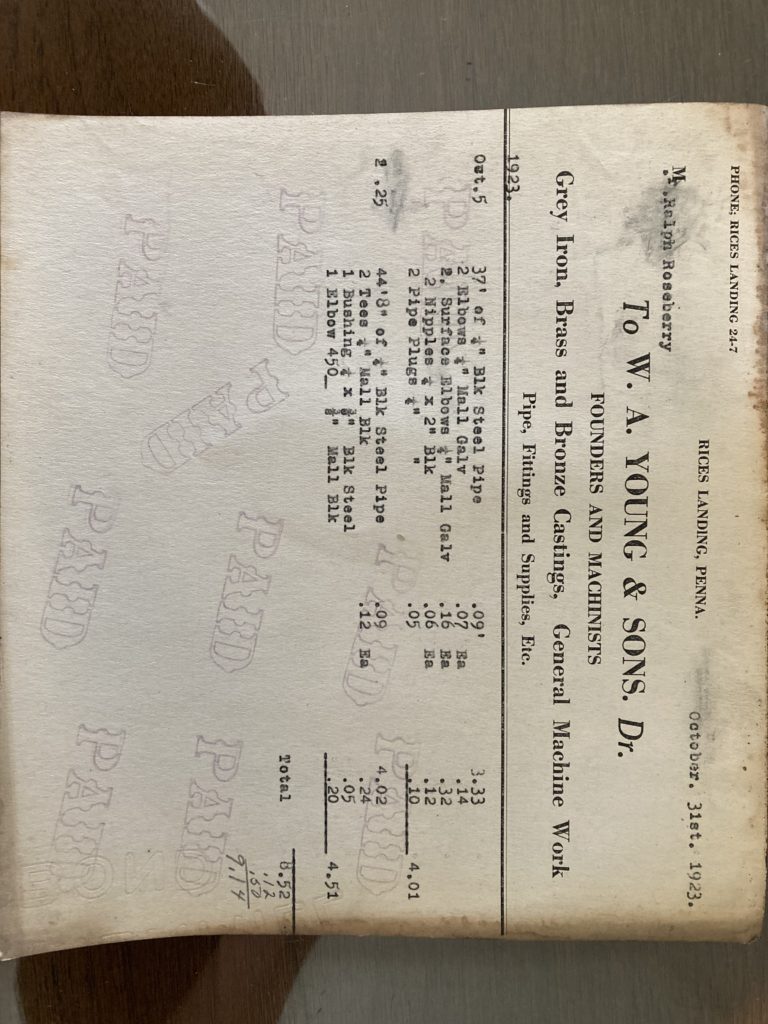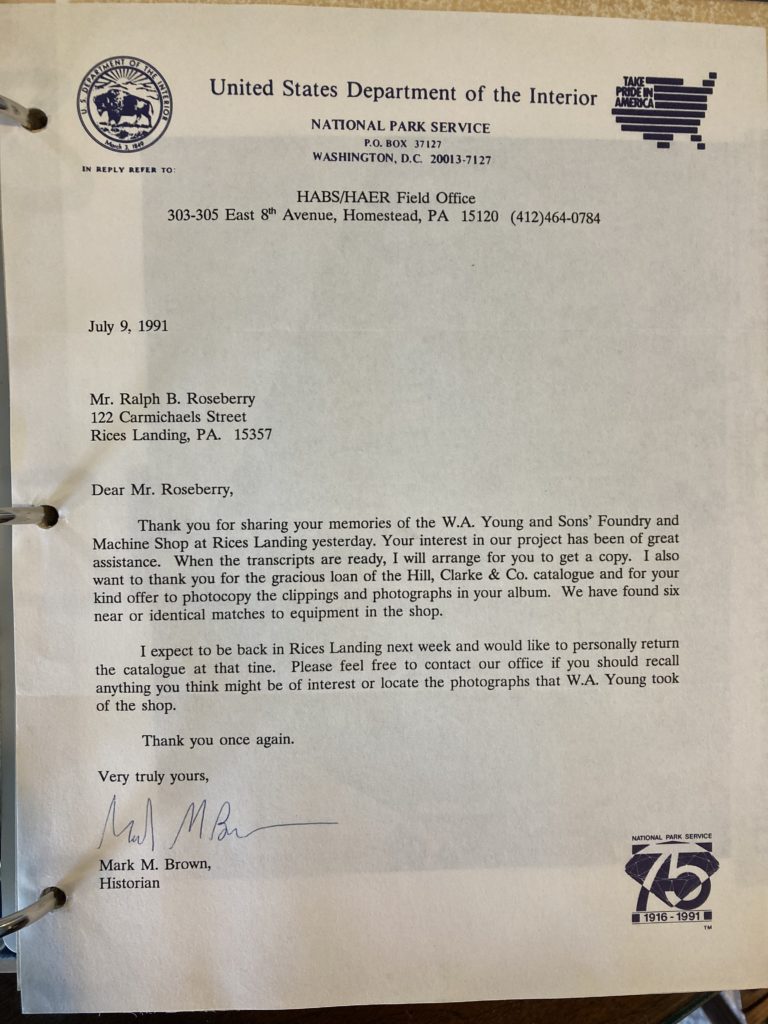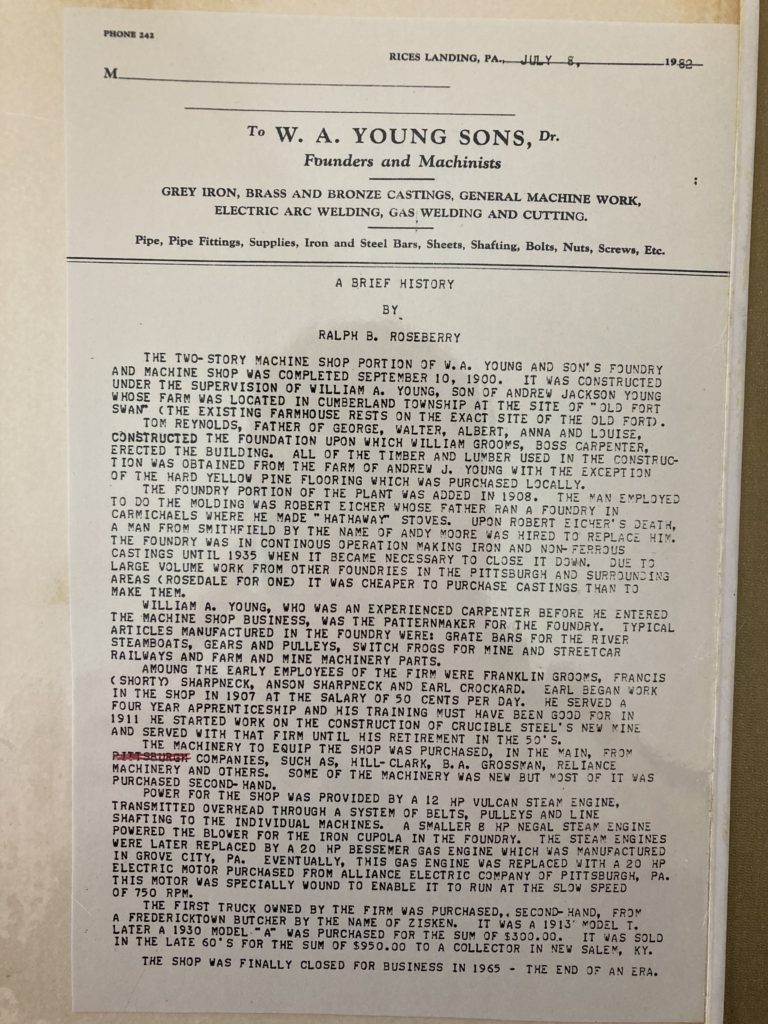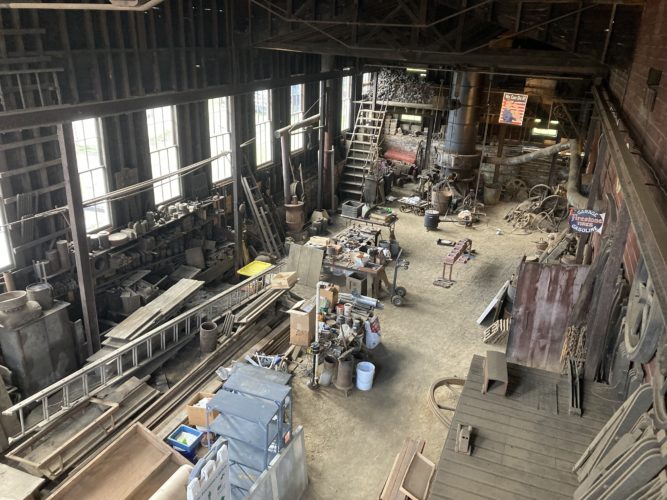 Colin Rhodes
Colin Rhodes As the Monongahela River forms the east border of Greene County, there sits a red building with a green roof and white letters stretching across the front that say “W.A. Young & Sons Foundry and Machine Shop.”
The annual Hammer-In Festival will be held April 15.
William A. Young supervised the construction of the machine shop in 1900, the same year it opened with used parts built in the 1870s and 1880s. Young added the foundry in 1908.
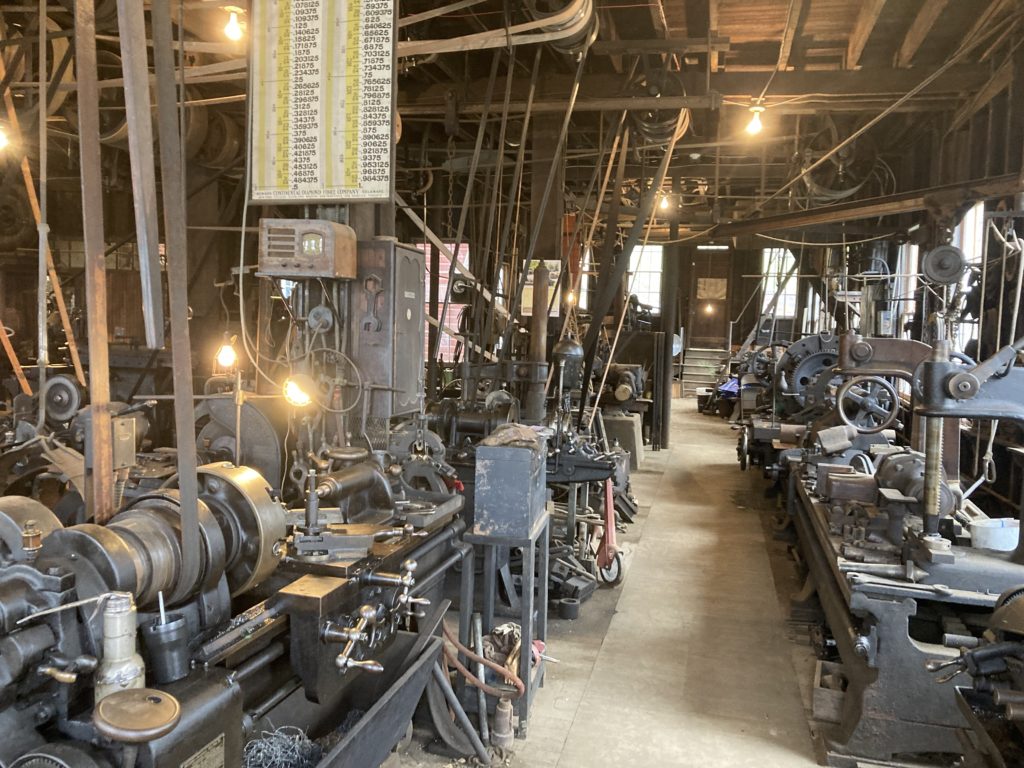
Caption: Inside the machine shop (left) and foundry (right)
According to George Blystone, who works on preserving and teaching the history of the foundry and machine shop, the foundry and machine shop closed its doors for good in 1965 as Young’s sons reached their 80s and couldn’t operate it any longer.
“They just quit,” Blystone said. “It was abandoned for a short time, and they tried to sell it to a private party.”
A private party did buy it and later sold it in 1985 to Farley Toothman, the president of the Greene County Historical Society at the time.

Toothman, who now owns a cafe in Waynesburg, said he always had an interest in the history of the Industrial Revolution in Greene County, but it was a chance meeting with a realtor he knew where he learned about the foundry.
“I was walking down the street and a realtor [I knew] stopped me,” Toothman said, “He said ‘I just listed a property down at Rices Landing I think the Historical Society should be interested in.’ And I said ‘Oh, well I’m interested.’”
According to an article in the possession of the Greene County Historical Society from The Pittsburgh Press published June 2, 1985, the Historical Society took ownership of the foundry in May of that year. Toothman called it an “archive moment” when he purchased the foundry, as he knew they didn’t have the money to restore it.
In 2009, the Historical Society sold the property to a Pittsburgh-based organization called Rivers of Steel, which works on preserving foundries and machine shops like the one in Rices Landing, according to Ron Baraff, the Director of Historic Resources and Facilities at Rivers of Steel.

“Our goal is to keep the site active and engaged in the community,” Baraff said. “It is our job as historians and interpreters to serve as guides for others to understand the past and make it come alive again. The machine shop offers the perfect vehicle for such engagement. It is a rare gem that must be preserved and celebrated.”
Blystone has worked at the foundry for around 30 years, taking over for a friend, George Kelly. Blystone witnessed the effort Rivers of Steel has put into restoring the foundry. He said they poured over a million dollars in the last five years to replace the outer siding, windows, a new roof, and some repairs to the inside.
“They’re a really big help,” Blystone said.
Blystone gives tours of the foundry every Sunday from noon to 4 p.m. During these tours, the machine shop comes to life with the original equipment still operational for demonstrations.
Also during the tours, guests have the opportunity to make aluminum castings with the help of an experienced blacksmith that comes every week, according to Blystone.
While the machine themselves and other items and tools that were used during the operation of the machine shop are still there, several documents are currently at the Greene County Historical Society’s library.
Among these documents are receipts dating back to the 1920s and 1930s, a certificate of registration from 1913 showing authorization from the Pennsylvania State Highway Department for the machine shop to make “motor vehicle parts,” floor plans of the foundry and machine shop, a written document by a man named Ralph B. Roseberry telling the history of the foundry and machine shop, and a letter from an H.C. Young confirming Roseberry worked at the machine shop.
Caption: A receipt from Feb. 28, 1923 (top left), the certificate of registration (top right), the document by Roseberry (bottom left), the letter by H.C. Young (bottom right)
There are also photos taken well after the closing of the foundry and machine shop, such as an aerial shot by Kevin Sell taken within the last eight years.
As for the future of W.A. Young & Sons Foundry and Machine Shop, Blystone says Rivers of Steel continues to work on repairing what doesn’t work while also preparing for the annual Hammer-In Festival.
The Hammer-In Festival went on before Blystone even started working there as the only thing happening in the foundry. It’s what gave him the idea to have weekly tours.
“I got with me and a friend and I said ‘We’re gonna just start opening this every weekend and see what happens,’” Blystone said.
The Hammer-In Festival sees blacksmiths from Pittsburgh and Morgantown come together and show their skills with the equipment at the foundry. It happens every third Saturday of April, and information can be found on the Hammer-In Festival page on Rivers of Steel’s website.


